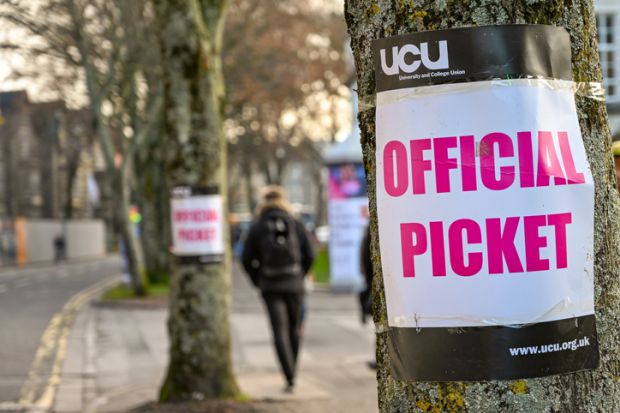Staff at a UK university will go on strike in opposition to the introduction of a “two-tier workforce”, which has seen new academic staff employed on “worse terms and conditions”.
Members of the University and College Union at Falmouth University will hold three consecutive days of industrial action from 17 to 19 October as part of the long-running dispute.
Ninety per cent of UCU members who voted in a strike ballot backed taking action over the creative arts university’s creation of a new subsidiary company, Falmouth Staffing Ltd (FSL), in September 2021.
UCU said staff employed through the subsidiary do not have access to the Teacher's Pension Scheme (TPS), used by most post-92 universities, and are instead offered an “inferior” private pension.
The TPS scheme has employer contributions of 23.6 per cent whereas the private scheme starts at only 6 per cent, the union said.
UCU also said newly employed academic staff will lose continuity of service as they move from other post-92 universities, colleges or schools, and when they move onto other university posts. “No other university in the south-west region is taking this course of action,” the union added.
UCU general secretary Jo Grady warned that if the institution “gets away” with imposing different conditions on new staff, the practice could spread to other parts of the sector. She called for Falmouth to “abandon these plans if it wants to avoid further disruption”. Earlier this year staff at Staffordshire University held strike action in opposition to a similar plan at their university.
“It is completely unacceptable that management is shunting new academic staff onto contracts with worse terms and conditions and a vastly inferior pension scheme than their colleagues,” Dr Grady said.
“This is not only bad for new staff, it is also bad for existing staff who see the university trying to worm its way out of hard-won terms and conditions, and it is bad for students as Falmouth will struggle to attract people who can get jobs elsewhere with better conditions.”
Industrial action has already affected UK campuses so far this academic year, with Unison members staging walkouts as part of calls for a pay rise in line with inflation. UCU’s sector-wide ballot on whether to take further industrial action as part of long-running disputes on pensions, pay and working conditions ends on the 21 October.
A Falmouth spokeswoman said it was “deeply regrettable” that the strike action was going ahead.
“The university is disappointed that this was announced, and will have an impact on students, while it has made clear its willingness to enter constructive negotiations to resolve this local dispute,” she added.




